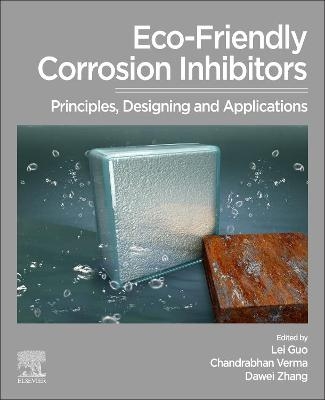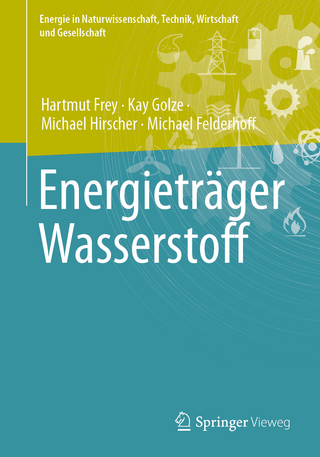
Eco-Friendly Corrosion Inhibitors
Elsevier - Health Sciences Division (Verlag)
978-0-323-91176-4 (ISBN)
Lei Guo received his PhD degree in materials chemistry from the Chongqing university of china. His research is dedicated to synthesis and characterization of organic molecules and their application towards corrosion inhibition property for the protection of metals and alloys from acid corrosion. His interests also encompass theoretical and experimental research in condensed matter physics Chandrabhan Verma, PhD, works at the Interdisciplinary Research Center for Advanced Materials, King Fahd University of Petroleum and Minerals, Dhahran, Saudi Arabia. He is a member of the American Chemical Society (ACS). His research interests mainly focus on the synthesis and design of environment-friendly corrosion inhibitors used for several industrial applications. Dr. Verma received his PhD degree from the Department of Chemistry at IIT?BHU, Varanasi, India and MSc degree in organic chemistry (Gold Medalist). Dr. Verma is the author of several research and review articles in peer-reviewed international journals. He has also received several national and international awards for his academic achievements. Dawei Zhang is a full professor at University of Science & Technology Beijing. He is the Director of International Relations of Chinese Society for Corrosion and Protection and Chair of East Pacific and Asia Area of NACE International. His current research interests include smart coatings and surfaces, microbiologically influenced corrosion and corrosion machine learning. He has published over 100 papers on journals including Nature, Corrosion Science and Journal of Materials Chemistry A. He is currently an Editor of Corrosion Science and member on editorial boards of several journals including Materials Degradation and Corrosion Engineering Science & Technology.
Part 1: Overview of Industrial Corrosion and Inhibition
1. General Principles of Industrial Corrosion
2. Corrosion Prevention and Protection Methods
3. Development Process for Eco-Friendly Corrosion Inhibitors (including the Mechanism Analysis, Longevity, Solubility and Toxicity Assessment in this Chapter)
Part 2: Industrial Environments & Corrosion Inhibitors
4. Acidizing Corrosion Inhibitors
5. Corrosion Inhibitors Uesd in Alkaline Environments (including Metal-air battery field)
6. Corrosion Inhibitors in Near Neutral Media
7. Supramolecular Corrosion Inhibitors for Cooling Water Systems
8. Corrosion Inhibitors for Oil and Gas Systems
9. Vapor Inhibitors for Corrosion Protection
10. Inhibitors for Microbiologically Influenced Corrosion (MIC)
11. Corrosion Inhibitors for Cu Chemical Mechanical Planarization (CMP)
Part 3: Modern Environmental Friendly Corrosion Inhibitor Systems
12. Heterocyclic Corrosion inhibitors with Multi-anchoring Groups
13. Pharmaceutical Drugs as Corrosion Inhibitors
14. Plant Extracts as Environmental Sustainable Corrosion Inhibitors
15. Ionic liquids as Green and Sustainable Corrosion Inhibitors
16. Applications of Nanomaterials in Corrosion inhibitors
Part 4: Emerging Trends in Corrosion Inhibition
17. Modern Testing and Analyzing Techniques In Corrosion
18. Development of High Temperature Corrosion inhibitors
19. Smart Corrosion Inhibitor: Present Status and Future Scenario
20. Computational Methods Used in Corrosion Inhibition Research
21. Corrosion Inhibition Strategy: Synergistic Effects
| Erscheinungsdatum | 04.07.2022 |
|---|---|
| Verlagsort | Philadelphia |
| Sprache | englisch |
| Maße | 191 x 235 mm |
| Gewicht | 450 g |
| Themenwelt | Naturwissenschaften ► Chemie ► Technische Chemie |
| Technik | |
| ISBN-10 | 0-323-91176-5 / 0323911765 |
| ISBN-13 | 978-0-323-91176-4 / 9780323911764 |
| Zustand | Neuware |
| Informationen gemäß Produktsicherheitsverordnung (GPSR) | |
| Haben Sie eine Frage zum Produkt? |
aus dem Bereich


